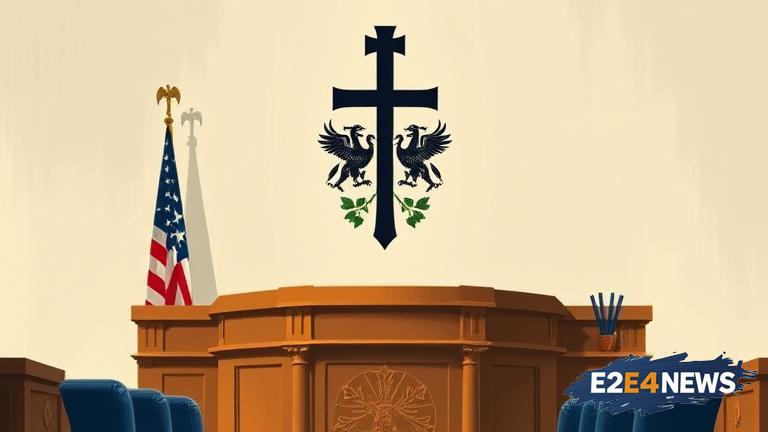In a significant development, a West Virginia circuit judge has granted a motion to combine multiple cases related to religious exemptions for vaccines. This decision is expected to have far-reaching implications for individuals and families seeking exemptions from vaccine mandates on religious grounds. The cases in question involve plaintiffs who claim that their religious beliefs prohibit them from receiving certain vaccines, and they are seeking exemptions from vaccine requirements for themselves and their children. By combining these cases, the court aims to provide a unified approach to addressing the issue, which could potentially set a precedent for future cases. The judge’s decision is seen as a positive step for those advocating for religious freedom and the right to make informed decisions about their health. The combined cases will now proceed through the court system, with the judge expected to hear arguments and make a ruling on the merits of the cases. The outcome of these cases could have significant implications for vaccine policies and religious exemptions in West Virginia and potentially beyond. The plaintiffs in the cases are arguing that their religious beliefs are sincerely held and that they should be exempt from vaccine requirements. They claim that receiving certain vaccines would violate their deeply held religious convictions, and they are seeking protection under the West Virginia Constitution and federal law. The defendants, on the other hand, argue that vaccine mandates are necessary to protect public health and that exemptions should be strictly limited. The court’s decision to combine the cases is seen as a pragmatic approach, allowing the judge to consider the issues in a comprehensive and efficient manner. The combined cases will enable the court to hear from multiple plaintiffs and defendants, providing a more complete understanding of the issues at stake. As the cases proceed, the court will need to balance the competing interests of public health, religious freedom, and individual autonomy. The judge will need to consider the scientific evidence regarding vaccine safety and efficacy, as well as the religious and philosophical beliefs of the plaintiffs. The outcome of these cases could have significant implications for the broader debate about vaccine mandates and exemptions. The decision could also impact the way that schools, healthcare providers, and other institutions approach vaccine requirements and exemptions. In West Virginia, the issue of vaccine exemptions has been a topic of controversy in recent years, with some lawmakers and advocacy groups pushing for stricter vaccine requirements and others advocating for greater flexibility and accommodation for those with religious or philosophical objections. The court’s decision to combine the cases is seen as a significant step forward in addressing the issue, and the outcome is likely to be closely watched by stakeholders on all sides of the debate. The cases are expected to proceed through the court system in the coming months, with a ruling potentially issued later this year or in early 2026. The decision could have far-reaching implications for individuals, families, and communities in West Virginia and beyond, and it is likely to be the subject of ongoing debate and discussion in the months and years to come. The issue of vaccine exemptions is complex and multifaceted, involving questions of science, philosophy, and law. The court’s decision will need to take into account the various competing interests and values at stake, including the need to protect public health, respect individual autonomy, and accommodate deeply held religious and philosophical beliefs. As the cases proceed, the court will need to consider the potential consequences of its decision, including the impact on vaccine rates, public health outcomes, and the rights and freedoms of individuals and families. The decision could also have implications for the role of government in regulating healthcare and the balance between individual freedom and collective well-being. The court’s approach to the cases will be closely watched, with many stakeholders eager to see how the judge will navigate the complex and often contentious issues at stake. The outcome of the cases is likely to be significant, with potential implications for vaccine policies, religious exemptions, and individual autonomy in West Virginia and beyond.
